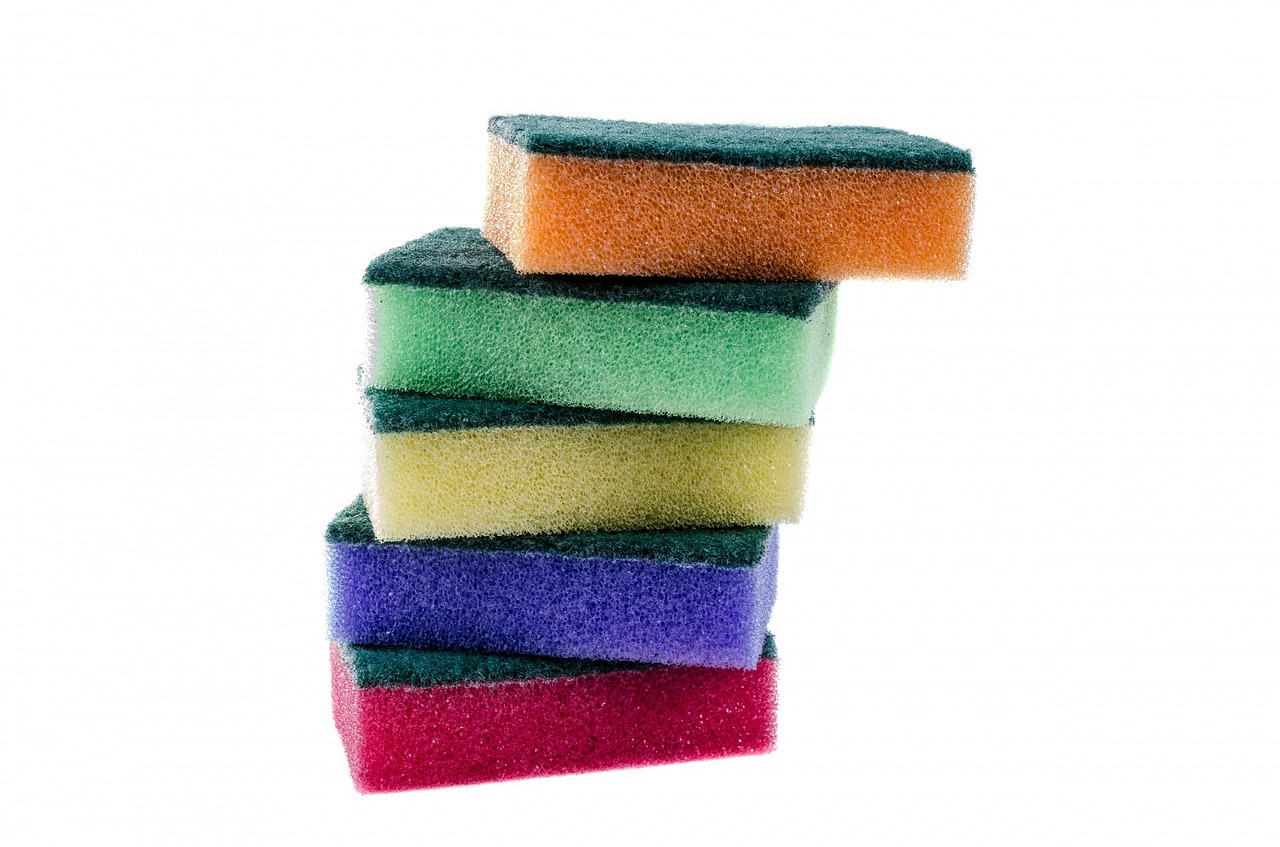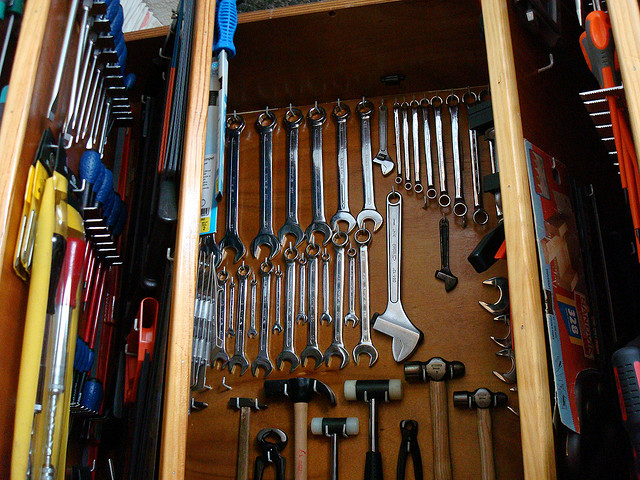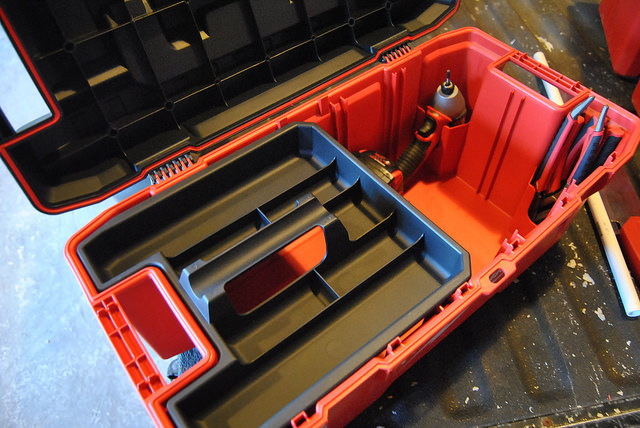Taking Good Care of Your Tools: Battling Rust
Published by Priscilla on 11th Feb 2015
Battling Rust

Preventing Rust
Rust weakens your tools, dirties your workplaces, and interferes with your projects. Try to avoid rust wherever possible in order to improve your work, enjoyment and your tools’ lifespans.
|
Keep your tools in a dry place. It seems obvious, but many enclosed spaces (like sheds, garages and basements) can have humidity issues, especially if they are climate-controlled. If you store your tools somewhere that fits this description (especially if they are shelves or pegboards and are exposed to the open air), you might want to consider investing in a dehumidifier. A dehumidifier will to keep the dampness down, and they aren’t very expensive compared to how much you paid for your tools. Most dehumidifiers will even let you set a humidity level so the dehumidifier stays off unless the humidity rises above that level. |
|
|
|
Hang your garden tools. Even if you keep your tools inside your shed or the garage, make sure they don't rest on the floor. Moisture settles, and can easily creep up from concrete floors.
Store power tools in their original cases. The original cases are designed with their matching power tool in mind. Not only will your power tools be better protected from humidity, but they will be better protected all around. |
|
Use silica gel packs or rust collector. Silica gel packs are designed to absorb moisture, so they are great at keeping moisture at bay. Without the extra moisture in the air, tools are less likely to rust. So just toss a few silica packs into your drawers and toolboxes, or you can buy rust inhibitors or anti-rust liners that do the same thing. Of course, if the general environment isn’t dry to begin with the inhibitors won’t help much. They work by taking moisture out of the air-don’t expect them to absorb large quantities of water. So, once you've stored your tools in a dry drawer or toolbox, use the packets to keep that toolbox even drier. |
 |
You can find silica packs or inhibitors at a hardware store, or even use the silica packs that come with packages of pills or electronics.
Use vapor corrosion inhibitors.
Strips of vapor corrosion inhibitor, such as the ones made by Bull Frog, can also help prevent rust. They work by emitting a gas that deposits a protective layer on metal surfaces. Because of the mechanics of how these strips work, it’s probably better to use them in small, enclosed environments such as tool boxes or drawers.
Getting Rid of Rust
Unfortunately, there are times when you just can’t prevent your tools from rusting. And once it’s there, you need to get rid of it. Given enough time, rust will damage metal permanently.
Here are a few suggestions for what you can do to get rid of rust.

For lightly rusted surfaces:
Spray the metal with a penetrating lubricant like WD-40, then scrub with a heavy-duty Scotch-Brite pad. Don’t use sandpaper; it will scratch the metal. Afterward, was off the metal with warm, soapy water and scrub it again with a cloth or rag. Make sure all signs of rust are gone, and the lightly re-apply a thin coat of WD-40 and wipe away any excess oil before you put the tool away. Make sure you wipe off the excess lubricant before you put the tool away.
For more heavily rusted metal:
You can try a spray-on, wipe-off, acid-based rust remover like Rust Free, Naval Jelly, or Evapo-Rust Rust Remover. After the rust is gone: Apply a rust-inhibitor spray like Boeshield T-9. The spray will leave a thin, waxy film on the surface that will insulate the water from metal and oxygen. Wipe away any excess spray immediately.
Taking good care of your tools does require some commitment, but you will reap the reward of clean, undamaged tools that you can find and use effectively each time you start a new project.
Hanging Screwdrivers in Cabinet - Image by Juan Pablo Olmo https://www.flickr.com/photos/charles_hudson/ See more at: https://creativecommons.org/licenses/by-nc-sa/2.0/legalcode
Red Mostly Empty Tool Box - Image by Charles & Hudson https://www.flickr.com/photos/charles_hudson/ See more at: https://creativecommons.org/licenses/by-nc-sa/2.0/legalcode
Other Images from Pixabay



